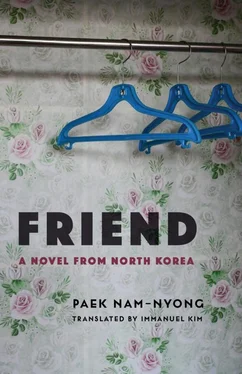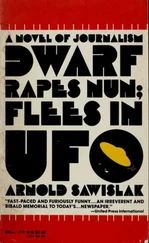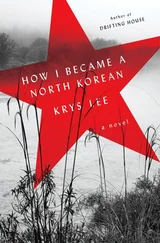Friend is set during the Hidden Hero campaign of the 1980s, which sought to recognize the extraordinary achievements of otherwise ordinary citizens, and elements of this campaign can be found in the novel. It is also influenced by Three Revolutions campaign mentioned earlier. Protagonist Judge Jeong Jin Wu admonishes the other characters for not abiding by the Party’s directives of self-improvement through education. Manual labor was no longer seen as the pinnacle of achievement in North Korean fiction. By the 1980s, many stories portrayed characters with higher education and technical skills. The trend in fiction of this period was to delineate a new class of intellectual heroes who improved social conditions with their brainpower rather than their brute strength. Seok Chun is a lathe operator who refuses to pursue the education that could raise him to a managerial or executive position at his factory. Paek does not denigrate Seok Chun’s achievements, but he does question whether the younger man could offer society more than the use of his hands. Judge Jeong Jin Wu rebukes Seok Chun’s averse attitude toward change, which is a common literary and rhetorical style in North Korean literature, and encourages him to enroll in the Engineering College. Although Judge Jeong Jin Wu works to inspire the characters to change so that they can help develop a stronger nation, the conclusion of the narrative is more ambiguous than the prescribed formula used in many North Korean works of fiction. For Paek, even proper political indoctrinations cannot make individuals change overnight. Ultimately, Paek designs his narrative around individuals who navigate their agency through the thicket of political expectations and discover meaning in themselves, family, and the community.
In this sense, Friend is Paek’s finest work, an achievement that has made him a renowned novelist in North Korea. The motif of the story is the catastrophic consequences of divorce that derive from individuals placing their self-centered choices above family unity in importance. Paek abides by the Party’s ideology on family as a small unit that ought to preserve the moral fabric of society, but he also asserts that remaining happily married is a completely different story. No political ideology can force individuals to love and live happily ever after. He acknowledges that marriage is hard work and that maintaining the harmony of a family requires self-sacrifice. And through secondary plotlines, Paek is able to complicate even this assertion. Far from being a tidy morality play, Friend portrays a messy world of human emotions and relationships that is at once entirely alien and eerily familiar.
WEATHERHEAD BOOKS ON ASIA
WEATHERHEAD EAST ASIAN INSTITUTE, COLUMBIA UNIVERSITY
LITERATURE
DAVID DER-WEI WANG, EDITOR
Ye Zhaoyan, Nanjing 1937: A Love Story , translated by Michael Berry (2003)
Oda Makoto, The Breaking Jewel , translated by Donald Keene (2003)
Han Shaogong, A Dictionary of Maqiao , translated by Julia Lovell (2003)
Takahashi Takako, Lonely Woman , translated by Maryellen Toman Mori (2004)
Chen Ran, A Private Life , translated by John Howard-Gibbon (2004)
Eileen Chang, Written on Water , translated by Andrew F. Jones (2004)
Writing Women in Modern China: The Revolutionary Years, 1936–1976 , edited by Amy D. Dooling (2005)
Han Bangqing, The Sing-song Girls of Shanghai , first translated by Eileen Chang, revised and edited by Eva Hung (2005)
Loud Sparrows: Contemporary Chinese Short-Shorts , translated and edited by Aili Mu, Julie Chiu, and Howard Goldblatt (2006)
Hiratsuka Raichō, In the Beginning, Woman Was the Sun , translated by Teruko Craig (2006)
Zhu Wen, I Love Dollars and Other Stories of China , translated by Julia Lovell (2007)
Kim Sowŏl, Azaleas: A Book of Poems , translated by David McCann (2007)
Wang Anyi, The Song of Everlasting Sorrow: A Novel of Shanghai , translated by Michael Berry with Susan Chan Egan (2008)
Ch’oe Yun, There a Petal Silently Falls: Three Stories by Ch’oe Yun , translated by Bruce and Ju-Chan Fulton (2008)
Inoue Yasushi, The Blue Wolf: A Novel of the Life of Chinggis Khan , translated by Joshua A. Fogel (2009)
Anonymous, Courtesans and Opium: Romantic Illusions of the Fool of Yangzhou , translated by Patrick Hanan (2009)
Cao Naiqian, There’s Nothing I Can Do When I Think of You Late at Night , translated by John Balcom (2009)
Park Wan-suh, Who Ate Up All the Shinga? An Autobiographical Novel , translated by Yu Young-nan and Stephen J. Epstein (2009)
Yi T’aejun, Eastern Sentiments , translated by Janet Poole (2009)
Hwang Sunwŏn, Lost Souls: Stories , translated by Bruce and Ju-Chan Fulton (2009)
Kim Sŏk-pŏm, The Curious Tale of Mandogi’s Ghost , translated by Cindi Textor (2010)
The Columbia Anthology of Modern Chinese Drama , edited by Xiaomei Chen (2011)
Qian Zhongshu, Humans, Beasts, and Ghosts: Stories and Essays , edited by Christopher G. Rea, translated by Dennis T. Hu, Nathan K. Mao, Yiran Mao, Christopher G. Rea, and Philip F. Williams (2011)
Dung Kai-cheung, Atlas: The Archaeology of an Imaginary City , translated by Dung Kai-cheung, Anders Hansson, and Bonnie S. McDougall (2012)
O Chŏnghŭi, River of Fire and Other Stories , translated by Bruce and Ju-Chan Fulton (2012)
Endō Shūsaku, Kiku’s Prayer: A Novel , translated by Van Gessel (2013)
Li Rui, Trees without Wind: A Novel , translated by John Balcom (2013)
Abe Kōbō, The Frontier Within: Essays by Abe Kōbō , edited, translated, and with an introduction by Richard F. Calichman (2013)
Zhu Wen, The Matchmaker, the Apprentice, and the Football Fan: More Stories of China , translated by Julia Lovell (2013)
The Columbia Anthology of Modern Chinese Drama , abridged edition, edited by Xiaomei Chen (2013)
Natsume Sōseki, Light and Dark , translated by John Nathan (2013)
Seirai Yūichi, Ground Zero, Nagasaki: Stories , translated by Paul Warham (2015)
Hideo Furukawa, Horses, Horses, in the End the Light Remains Pure: A Tale That Begins with Fukushima , translated by Doug Slaymaker with Akiko Takenaka (2016)
Abe Kōbō, Beasts Head for Home: A Novel , translated by Richard F. Calichman (2017)
Yi Mun-yol, Meeting with My Brother: A Novella , translated by Heinz Insu Fenkl with Yoosup Chang (2017)
Ch’ae Manshik, Sunset: A Ch’ae Manshik Reader , edited and translated by Bruce and Ju-Chan Fulton (2017)
Tanizaki Jun’ichiro, In Black and White: A Novel , translated by Phyllis I. Lyons (2018)
Yi T’aejun, Dust and Other Stories , translated by Janet Poole (2018)
Tsering Döndrup, The Handsome Monk and Other Stories , translated by Christopher Peacock (2019)
Kimura Yūsuke, “Sacred Cesium Ground” and “Isa’s Deluge”: Two Novellas of Japan’s 3/11 Disaster , translated by Doug Slaymaker (2019)
Wang Anyi, Fu Ping: A Novel , translated by Howard Goldblatt (2019)
HISTORY, SOCIETY, AND CULTURE
CAROL GLUCK, EDITOR
Takeuchi Yoshimi, What Is Modernity? Writings of Takeuchi Yoshimi , edited and translated, with an introduction, by Richard F. Calichman (2005)
Contemporary Japanese Thought , edited and translated by Richard F. Calichman (2005)
Overcoming Modernity , edited and translated by Richard F. Calichman (2008)
Читать дальше












